“This is The Time to Speak Up—and Fashion is a Good Tool.”
Shyma Shetty, Co-founder of HUEMN, opens up about all that she seeks to say out loud with fashion, why your clothes should empower you, and how the label's latest unisex T-shirts are a satire of sorts…

Shyma Shetty, Co-founder of HUEMN, sits down with Cosmo to talk about all that the designer seeks to say out loud with fashion, the causes she holds closest to her heart, why your clothes should reflect and empower the real you, and how their latest unisex T-shirt range is a satire on all that we’ve been feeling watching the ‘news’ these days…
Cosmo: Tell us about HUEMN’s News T-shirt collection.
Shyma Shetty: “The T-shirt addresses many themes that are re-occurring in our communities today, globally—consumerism, capitalism, consumption of unchecked information, and peddling of journalism; how money and power can be a misused motivation; and that people are not sheep but individuals with opinions of worth.
I could go on, but, at the end of the day, the product is for the wearer. As with any art, the interpretation should be close to their heart.”

Shyma Shetty photographed by Mark Hanauer
C: In that light, the collection seems to be a satire of sorts on the current situation. As the creator, what have you intended for these tees to symbolise?
SS: “We’re increasingly consuming news that is more opinions than facts, news that has its own biases and can be dangerous if unchecked at this point. It is the duty of us creatives to react, engage, and provoke, and to start conversations. If the product arouses a reaction, whatever that may be, our job is done. In this case, we’ve said out loud what everyone has been feeling while watching the news—we put it on a T-shirt.”
C: And who do you see wearing your pieces?
SS: “You and I, sitting in different parts of the world, sharing a similar sentiment.
HUEMN seeks to give people a voice to express our thoughts succinctly…and the T-shirt, too, is made to be an extension of the personality of the wearer. It is for people who feel its undercurrent and wear their opinion fearlessly (and maybe find a chuckle or two in it!).

C: What is your take on the idea that ‘clothes define the wearer’…or vice versa?
SS: “As designers, our clothes are our canvas, to paint with our thoughts. This makes the product opinionated and honest. If you identify with it, I hope you find joy in wearing it. But clothes can’t define someone—you must choose to define yourself, and then pick your clothes.
Fashion can’t be authentic if it steps away from the wearer and projects a ‘look’ What one chooses to wear is an extension of one’s thoughts, feelings, life, upbringing, and experiences—that is what excites us about dressing up. Fashion should be used as a tool that speaks volumes about you, before you decide to speak.”
C: But even as fashion is on its way to becoming all-accommodating and all-inclusive, there are instances when one is ‘judged’ because of the choice of clothes...
SS: “Judgments come from a space of insecurity and lack of understanding. This is a tool that keeps people under their glass ceilings…and in boxes like gender, colour, and shape. It diminishes the individual. What is ‘appropriate’ and ‘allowed’ or ‘beautiful’ are all just opinions in particular time-frames and don’t hold much relevance at a future time. Fashion, in that sense, can be extremely free-ing and empowering. Nothing can stop an idea whose time has come… this is the time to speak up—and fashion is a good tool.”

C: Talking of speaking up, what are some pressing issues at the moment that you feel strongly about?
SS: “These are tough times for people, globally, and there is much that we must stand for. Dignity and equal opportunity for all humans is at the top of my list. Then, I think mental health needs to be given more importance; and the idea of ‘beauty’ being a yardstick that women should aspire for needs to be broken down. And we need to lead more sustainable lives and inculcate it into the next generation. There’s also much work to be done in recognising the non-binary and stepping away from stereotypes. I’m an eternal optimist and feel like the day we start lifting each other up, rooting for our people, extending a hand and a kind word—half the job will be done.”
C: And what would your advice be to anyone not sure how the world would react to their choice of clothes, or anyone not wanting to follow the fashion stereotypes?
SS: “I’d say, start with yourself. How do you view the world? Educate yourself on topics you don’t grasp. Meet people unlike yourself. We see the damage stereotypes have done through history and should aim to be better. This, by itself is incredibly empowering, and will help you find your voice. Wear what you want, joyously. As long as you’re being authentic, it will make you fearless; and fashion will be your closest ally.”

more from Fashion
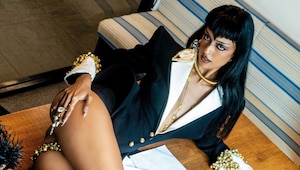
Subiksha Shivakumar is rewriting what it means to be a modern model
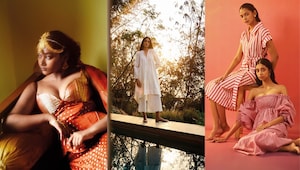
Five Bengaluru designers to have on your radar

How Manika Batra is turning athlete fashion into a personal power play
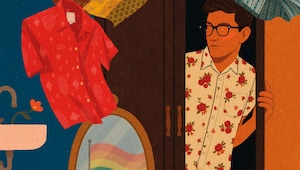
A love letter to florals and the beauty of growing beyond the lines
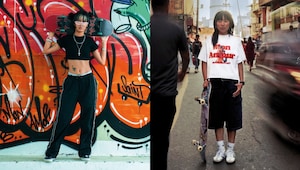
Meet the Nepal skaters turning anime, Y2K and metal music into a fashion movement

Six fashion insiders on the chaos, clarity, and creativity behind their wardrobes
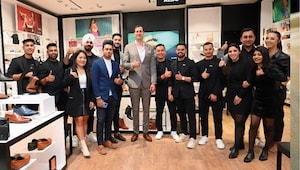
How Aldo became one of the hottest footwear and accessories brands in India

The cutest festive manicure ideas that will match every holiday mood

Four photographers on why a good photograph is more than just a good camera

Do opposites really attract or is that just pop culture lying to us?
